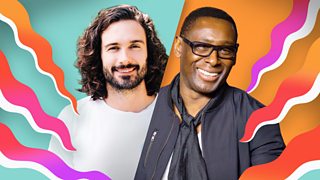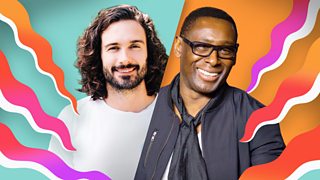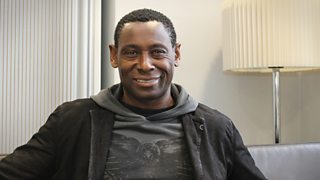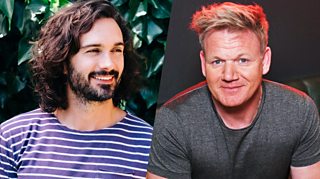David Harewood: Nine things we learned when he chatted with Joe Wicks
David Harewood has been a regular face on TV and cinema screens for decades. Best known for playing David Estes on the TV show Homeland, he’s found huge success in America. This week on The Joe Wicks Podcast, Joe talks to David about his career, his history of mental health difficulties and taking up snowboarding in middle age.
Here are nine things we learned...
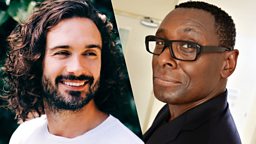
1. Lockdown has really helped his mental health
David has been very open about his mental health difficulties, including a history of depression and a psychotic breakdown in his 20s. He says that lockdown has been a welcome opportunity to give himself time to recharge. “This is actually the longest I’ve been home in eight years. I’m normally only [home, in London] two months of the year, because I’m filming,” he says. “The last two summers coming back here have been really tough. I was exhausted. I needed that space. Luckily for me, lockdown presented that… I’ve loved it.”
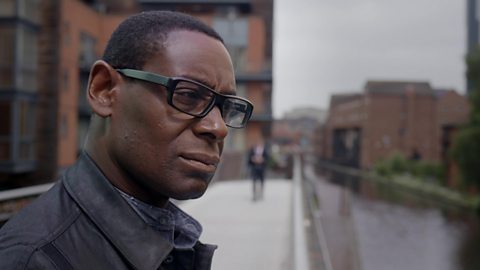
How David ended up in a locked ward
David describes his own visceral experience of a psychotic episode.
2. Making his documentary about psychosis terrified him
In 2019, David made the documentary David Harewood: Psychosis and Me. It reflected on his breakdown and looked at the help available to people having similar experiences today. He says making the documentary was one of the scariest things he’d done, because it meant reliving an experience that still affected him. “I just didn’t know what I was going to find,” he says. “I was terrified of what the next day was going to hold, what I was going to find out. I was in a very vulnerable position… I thought I’d dealt with this stuff, but I suddenly realised I hadn’t.”
3. Walking the dog is his big stress-reliever
When he’s home, David starts the day on a walk with his cavapoo, Sebby, and says that hour alone in the park is really helpful for clearing his mind. “It’s almost like an hour of meditation where I just create a peaceful space for myself, before I get home and the phone’s going, the emails are going, and the news is on the radio.” Don’t tell Sebby, but he’s naturally a cat person. “Growing up, I had cats…I’m very much a cat person, because cats are independent.”
4. When he got Homeland he was almost broke
David has long been a familiar face to film and TV viewers, but he says work has not always been steady. “[Before I got Homeland] I hadn’t actually worked in England on any TV for about nine months,” he says. When he got the call to say he’d got Homeland, he was almost penniless. “[My agent said], ‘You just got the biggest show of the year, Homeland.’ I checked my bank account and I was down to my last 80 quid.”
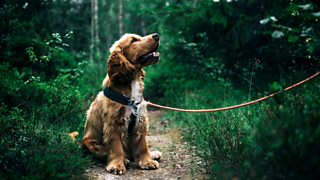
David Harewood on dog walking
A clip from The Joe Wicks Podcast
5. He thinks black actors still need to go to America for work
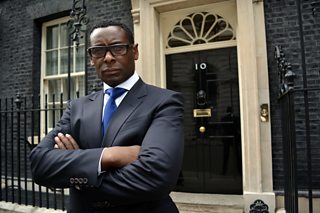
There isn’t the industry to support us here… I can turn on my TV in America and there’s a range of shows with black leading actors.David Harewood on being a black actor in the UK
Since Homeland, David’s career has been extremely successful. Most of his work is in America (he’s currently part of the cast of Supergirl), because he says opportunities for black actors are still limited in the UK. His last major British TV show was The Night Manager in 2016. “David Oyelowo, Idris Elba, Daniel Kaluuya – most of the major black actors leave [the UK],” he says. “There isn’t the industry to support us here… I can turn on my TV in America and there’s a range of shows with black leading actors.”
6. He thinks racism is still misunderstood in the UK
David calls the Black Lives Matter movement, and the attention it’s brought to issues of racism, “extraordinary”. He says he’s seen major changes and important discussions in America, but worries that there isn’t the same change happening in the UK. “Racism and its effects are still not really understood here. Our system is basically a class system,” he says. He believes the difficulties faced by black people are not acknowledged as being outside of the class system, that they’re not the same issues that separate working class and upper class. “It's very difficult to get people to acknowledge that there's a specificity to racism.”
7. He took up snowboarding in his 50s
David turns 55 next year and he’s still embracing new experiences. While shooting Supergirl in Vancouver, he tried his hand at snowboarding. Turns out he’s really good. “I’ve always wanted to and there are so many mountains in Vancouver,” he says. “A couple of the crew guys took me up [to Whistler]… I picked it up in about 15 minutes. Before I knew I was doing black runs on Whistler, flying down these mountains.”
8. He’s a big gamer
David is a huge fan of video games, especially the Call of Duty series. He even appears in Call of Duty: Infinite Warfare, as Sgt. Usef Omar. “As a gamer, that was awesome,” he says. “I’m playing it and I’m hearing my own voice and seeing my own character.” He loves gaming as a way to take time to himself. “It’s a way to switch off and relax.”
9. He’s writing his first book
Over the last year, David has taken a turn behind the camera, directing three episodes of Supergirl. Now he’s working on writing his first book. “It’s sort of a memoir of a breakdown and recovery,” he says. “As a young black kid from Birmingham, who’s also had a breakdown, I’ve come through that and succeeded and become a Hollywood actor. It’s still something I marvel at. I can’t underestimate that.”
More from Radio 4
-
![]()
The Joe Wicks Podcast: David Harewood
Joe Wicks talks to actor David Harewood.
-
![]()
David Harewood on Psychosis
A clip from Saturday Live.
-
![]()
Fearne Cotton: Nine things we learned when she spoke to Joe Wicks
Fearne and Joe discuss the joys of music, running, and the benefits of a cold shower.
-
![]()
Gordon Ramsay: Nine things we learned when he talked to Joe Wicks
What happened when Joe spoke with the superstar chef.
